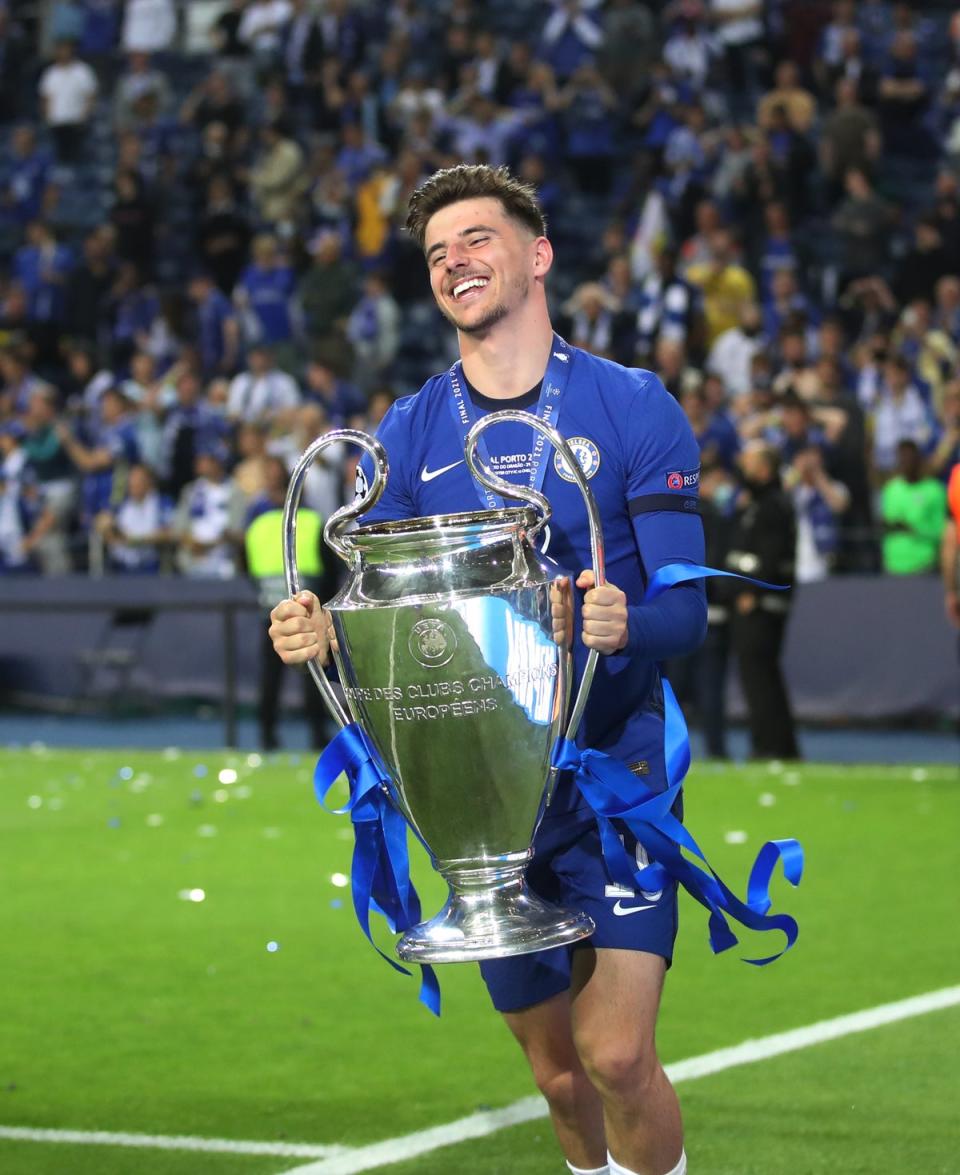Mason Mount returns to Stamford Bridge to reveal painful reality of new Chelsea era
The poster boy for Boehlynomics will be back at Stamford Bridge. Not Todd Boehly himself, and not merely because, after two seasons of hubristic failure, he is keeping a lower profile these days.
But Mason Mount, sold to Manchester United for £55m of pure profit – in the Financial Fair Play lexicon that Boehly has helped bring to a wider audience – which, in a world of amortisation of transfer fees over several years, permitted Chelsea to spend many times as much; from an accounting perspective anyway.
Meanwhile, Mount returns on Thursday with his new employers. He has a solitary goal for Manchester United while Cole Palmer, the Mancunian who could be presented as his replacement, has 16 goals and 12 assists in his relatively brief Chelsea career. All that from a player signed for less than the Londoners banked for Mount. It is an advertisement of Boehly’s brilliance.
Admittedly, the argument that Chelsea are savvy traders ends there. It falls down if the replacement for Mount is deemed to be Mykhailo Mudryk or Christopher Nkunku or Noni Madueke or virtually anyone else signed in a £1bn spree that leaves them in the lower half of the table.
At least Mount’s injury-interrupted United career – four league starts, three injuries – has scarcely provided another stick with which to beat Boehly. “He’s a fantastic football player but it’s important first that he is getting and keeping fit because he has had three injuries,” said Erik ten Hag, who must decide whether to give Mount a first start in five months after his belated maiden United goal came in Saturday’s cameo at Brentford.
Some schadenfreude has greeted Mount’s struggles. It is eminently possible he meets with some jeers at Stamford Bridge; the accusation is that his move was motivated by money. And in a sense, it was: by Chelsea’s need to bring in as much as possible, for a player who was entering the final year of his contract and who, having been at Stamford Bridge since the age of six, was homegrown.
“I don't think they wanted to sell him,” Ten Hag nevertheless claimed, in an interpretation of events that may not necessarily help Mount. “They wanted to keep him and offered him a new contract many times. But he wanted to make this step.”

If his intention was to argue that United had to prise Mount from Chelsea, it is correct in one respect: there was competition for his signature, with Liverpool other admirers. Yet the reality that Chelsea sold other academy products last summer, in Ruben Loftus-Cheek, Callum Hudson-Odoi and Ethan Ampadu, accepted an offer for another, in Ian Maatsen, tried to cash in on yet another, Armando Broja, in January, and will probably eye a sizeable profit if they can dispose of another, Conor Gallagher, at the end of the season, shows a wider trend. This is part of the business plan.
The shame of Mount, both Frank Lampard’s protégé and a boyhood admirer of Lampard, is that he seemed destined to become a cornerstone of the modern Chelsea. Only Mount and Juan Mata – another who swapped Stamford Bridge for Old Trafford, and with diminishing returns – have an assist for Chelsea in a Champions League final. Mount is their double Player of the Year; only Eden Hazard and Lampard have won the award more. He should have been a Chelsea great, and instead the accusation is that he is a United misfit.

His fortunes have nosedived since the Boehly takeover. His last season at Chelsea was his worst. His debut campaign at United got off to an inauspicious start, and then he was injured before August ended. If his latest spell on the sidelines has coincided with the emergence of Kobbie Mainoo, it prompts the question if a flagship signing ranks in Ten Hag’s strongest side anymore.
Then there is the tactical question. It felt as though Ten Hag’s strategy for the season – with Mount and Bruno Fernandes deployed as twin No 8s, far ahead of Casemiro – was destroyed on the opening day, as Wolves powered through an empty midfield. If it was a preview for many another game, usually without Mount, it is a reason why United have allowed opponents so many shots this season. That Mount’s best Chelsea form came in the front three of Thomas Tuchel’s 3-4-3 formation shows he excelled in a very different system and role.

He has to prove he can flourish in Ten Hag’s 4-3-3 at United; the presumption is the Dutchman still envisages him operating largely in the central trio. “We are very pleased he is a Manchester United player because he has great abilities and will contribute and become a big player for Manchester United,” he said.
If he is right, it would represent a further indictment of Chelsea. As it is, Mount’s return is a glimpse of a Chelsea that was washed away by a flood of signings, a Champions League winner sacrificed because of an incoherent spending spree. Perhaps some of the Chelsea fans will barrack him; they ought to both celebrate and mourn him.

